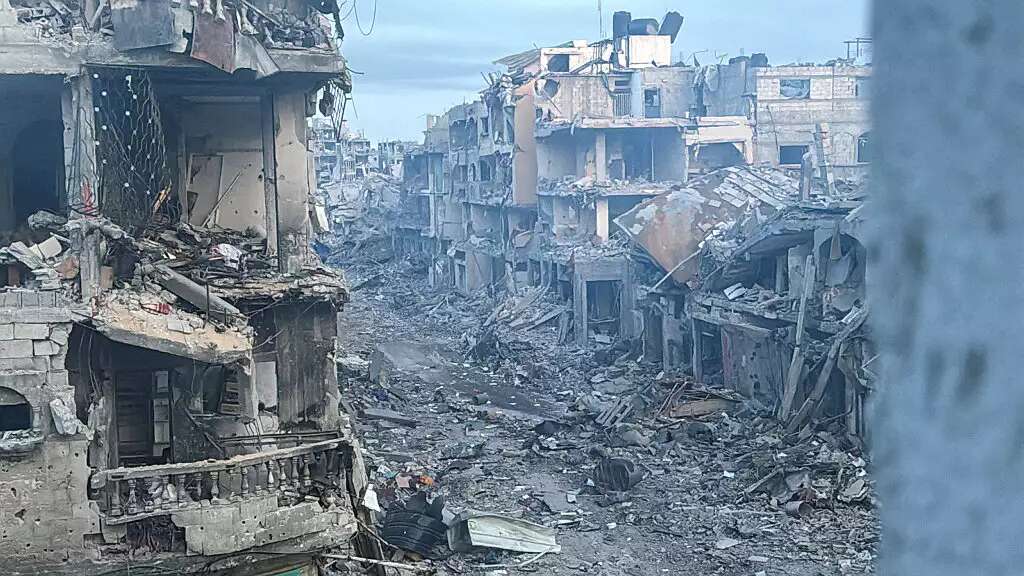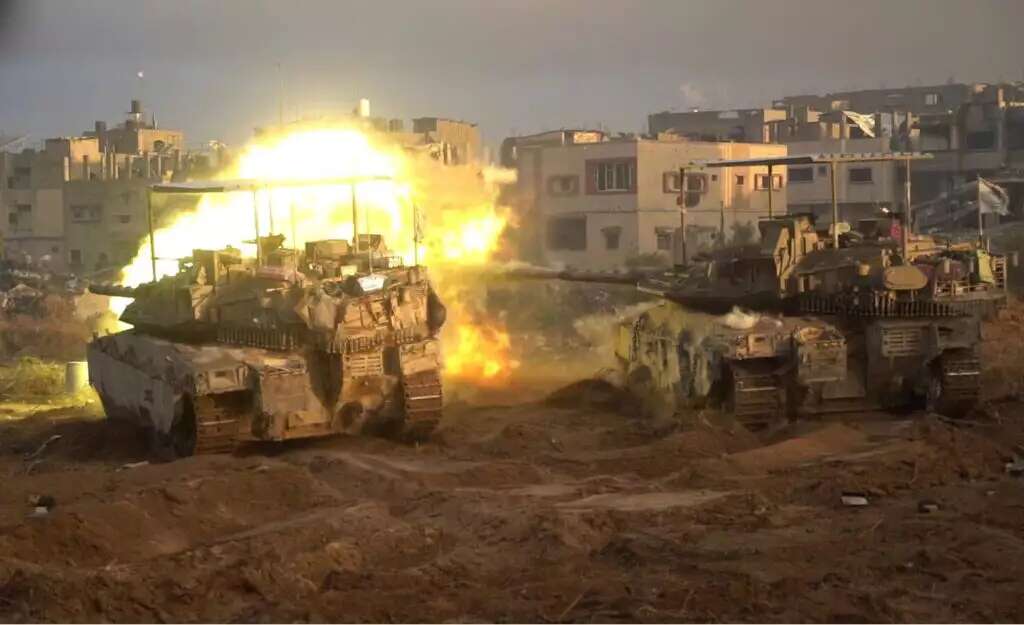Despite ceasefire, renewing Gaza offensive is inevitable
Contrary to President Trump's assessment, it appears the recent ceasefire and hostage deal will not bring an end to the war. A senior Palestinian official: 'Gaza is like a million Jenin camps.'
Danny Zaken
Israel Hayom
Jan 28, 2025

A senior Saudi diplomat stated, "The disaster Hamas has brought upon the Palestinians in Gaza is irreversible, and they must relinquish power. Hamas' extremists fail to grasp this—they have no regard for human life or their people's needs, and thus, they must be uprooted."
The Palestinian Authority (PA) also firmly opposes any Hamas involvement in Gaza after the war. PLO Executive Committee member Rawhi Fattouh delivered a clear message to Egypt during a visit to Cairo two weeks ago, stating that "Hamas follows an Iranian agenda of instability and chaos." The PA's position is that Hamas must pay the price for the events of October 7 and go into exile. A senior Palestinian official added that while the PA dismantled rogue organizations in the Jenin refugee camp, it cannot do so in Gaza: "Gaza is like a million Jenin refugee camps."

Professor Kobi Michael, a senior researcher at INSS, stated that "ensuring a stable security environment requires the complete dismantling of Hamas' governmental and military apparatus." According to Michael, the lessons of the Oslo process demonstrate that full authority over reconstruction cannot be entrusted to the Palestinians. Instead, he emphasized the need to "shatter the Palestinian struggle's narrative" and move beyond the familiar two-state paradigm.
Hamas' removal can occur in one of two ways. The first option involves an agreement that would send Hamas leaders into exile in countries like Algeria, Tunisia, or Turkey and include the complete disarmament of Hamas operatives. While some Hamas figures might entertain such discussions, leaders like Muhammad Sinwar and his allies are not inclined in this direction. The recent deal has provided them with a reprieve, and they are portraying a narrative of victory, amplified by much of the Arab media, especially Al Jazeera, which has become a staunch Hamas supporter.

IDF operations in the Gaza Strip.
The second option is a military one. A security source indicated that this is the IDF's recommendation, as leaving Hamas in power would mean a return to the pre-October 7 situation. However, the IDF has adopted a maneuvering approach centered on raids, which may fall short of achieving the desired outcome. The "mowing the grass" strategy employed in the West Bank is not applicable here, and recent incursions into Jabalia and Beit Hanoun highlighted Hamas' rapid recovery capabilities. The question remains whether the next IDF Chief of Staff will alter this approach. A decisive and comprehensive maneuver presents numerous challenges, including the extensive forces required, the remaining hostages, territorial control, and humanitarian concerns.
There have been few discussions at the political level regarding "the day after," and a consensus has emerged that the PA will not play a direct role. This position is supported by the US, Saudi Arabia, and the UAE, all of which demand dramatic reforms within the PA. However, a local Gaza civil leadership, experienced in managing life in the Strip, is expected to be involved. The first indication of this can be seen in their role in overseeing the Rafah border crossing.
Ultimately, none of the stakeholders in plans for Gaza's future will engage directly until the IDF achieves the collapse of Hamas. For now, these parties are prepared to offer generous aid later, at the expense of Israel's sacrifices today.
No comments:
Post a Comment